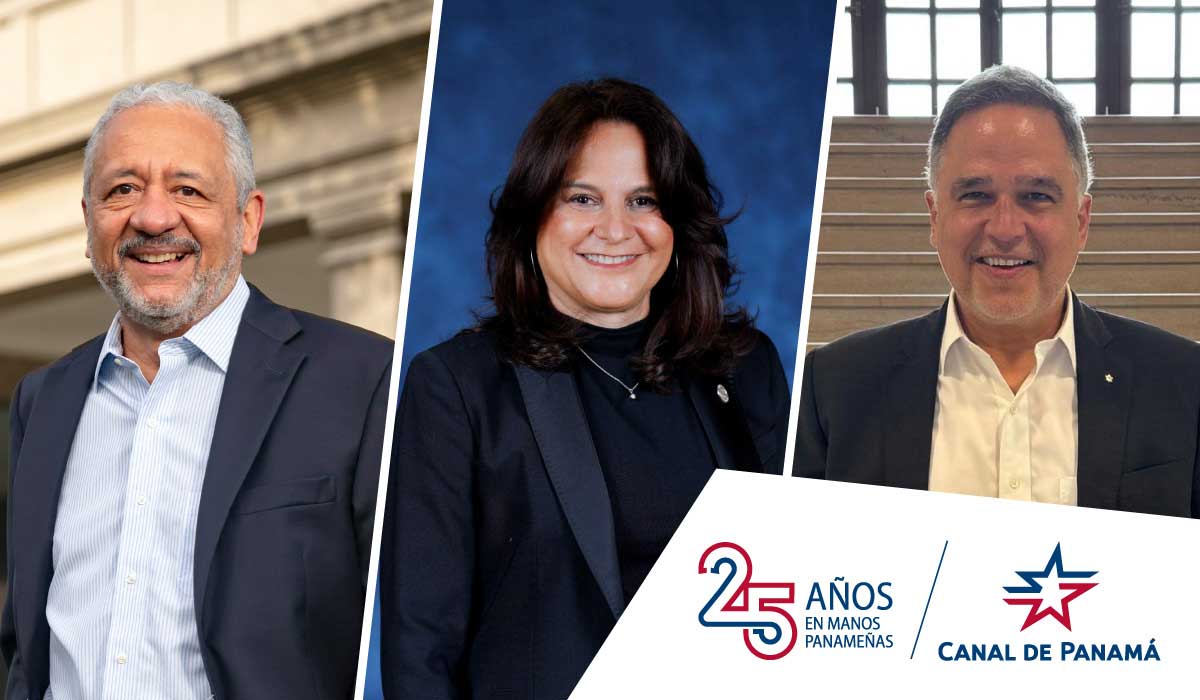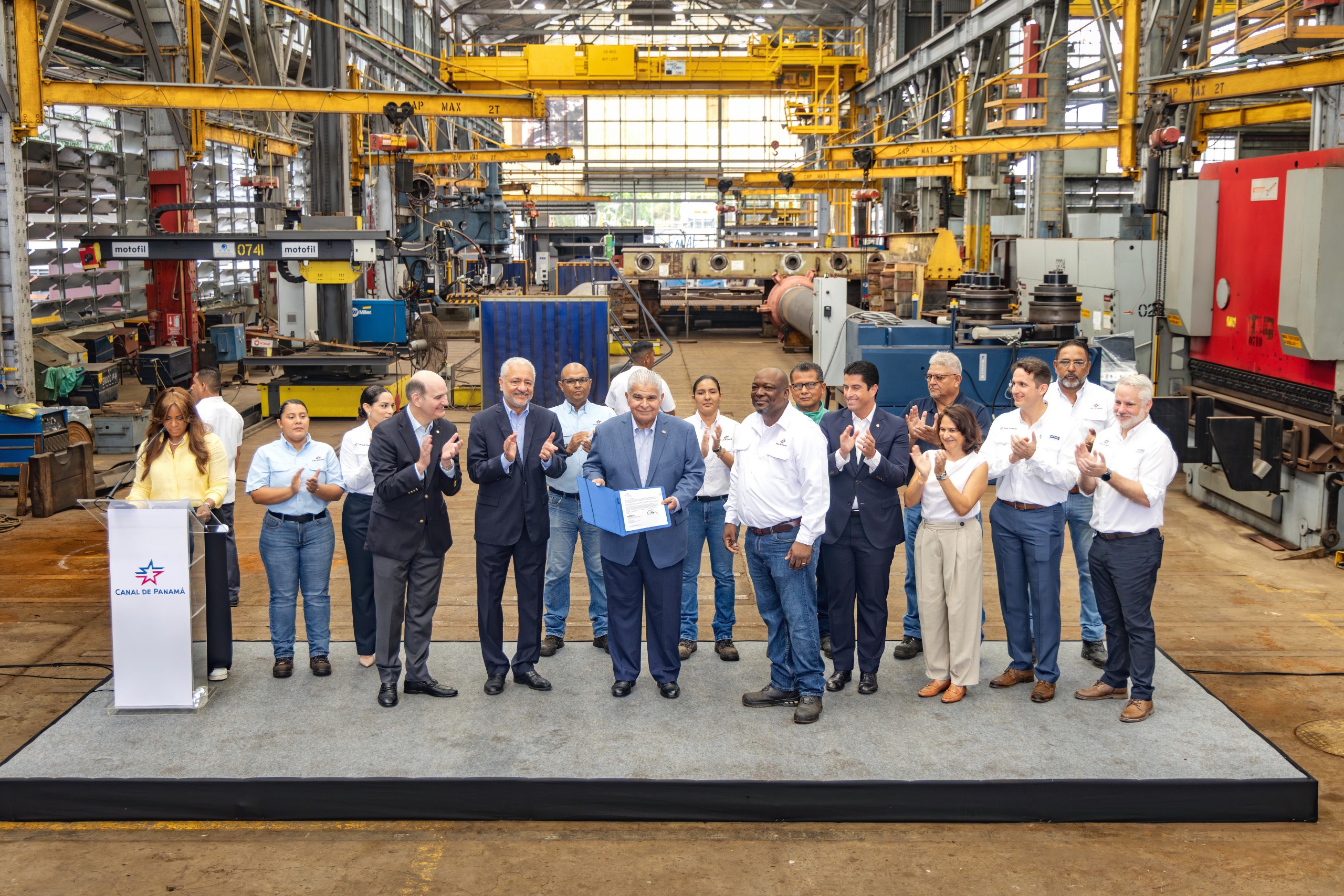The Panama Canal Authority (ACP) provided the third quarterly market update, by highlighting key achievements and forward-looking strategies in a call hosted by Managing Director of Emerging Markets Corporate Research at Bank of America Merrill Lynch Anna Milne. ACP Administrator Dr. Ricaurte Vásquez Morales, Chief Financial Advisor (CFO) Victor Vial, as well as Deputy Administrator and Sustainability Officer Ilya Marotta participated.
“We are pleased to report that the Panama Canal is operating at full water capacity,” said Vásquez as he kicked off the call, before giving a strategic overview of fiscal year 2025 while underscoring the extraordinary effort of the ACP to keep the canal a safe, reliable, and efficient waterway for its clients. “We have remained at 50 feet of draft throughout the dry season, and we will continue to have a relatively wet winter, or rainy season for the remainder of the year in preparation of the next dry season in early 2026,” he said.
Vásquez also addressed shifting trade patterns which have resulted in new investment opportunities for the ACP, including transshipment facilities and a liquified petroleum gas (LPG) pipeline, but he noted that capacity demonstrates a lag due to the volatility of prevailing markets. “Liquified Petroleum Gas, and container transits have increased, and dry-bulk has recovered from last year,” he said. “When we look at all that together, we expect that the Panama Canal will be a more diversified facility, entertaining the possibilities of serving the world, not only through the maritime world, but everything associated with the maritime world,” said Vásquez.
To that end, the ACP Board of Directors has indicated the advancement of the Rio Indio Project. This $1.6 billion reservoir expansion plan would give the canal 15 more transits a day and provide 860-970 million gallons of water per day to the canal’s lakes, offering additional water security to the area during drought. “In order to perform and execute that project, our main concern is the welfare and well-being of the population,” Vásquez said.
“We have a responsibility to provide water to about 50% of the population in Panama. As a consequence of that, the water that we are trying to generate for the future is essentially addressing the water consumption needs of the population and the operations of the Panama Canal. . . .The sustainability of the Panama Canal as a waterway is dependent on having the right tools to manage rainfall,” he said.
“We feel we’re well positioned for the future. We continue focusing on our operation and we continue focusing on the financial strength of the company to deliver for the country,” said Vial. He explained that the ACP has been focused on strengthening the balance sheet in order to fund these new investments by significantly decreasing liabilities to reduce the ACP’s debt from $2.6 billion in 2019 to $600 million now, which has resulted in an equity increase. Vial also emphasized the value of new offerings such as the long-term slot allocation (LoTSA) reservation system, which has driven more than $77 million in incremental revenue. “We have managed our costs, looked for productivity, and efficiencies…and worked to make the [canal] more attractive to [clients],” Vial said.
Additionally, Deputy Administrator Ilya Marotta emphasized the ACP’s sustainability initiatives. She highlighted two major efforts underway including the Net Zero Slot program and the integration of hybrid tugboats. Marotta also shared the ACP’s large engagement efforts to support the community during expansion efforts. “We have invested over $117 million in these 25 years on [local] communities in different programs,” she explained. “We started with the reforestation of 50 hectares in 12 different communities. We are also improving the local aqueduct areas, and basic sanitation,” she said.
The ACP has also provided instruction on sustainable agricultural for 80 families and 11 schools. “We’ve educated small kids to adults on how to protect the watershed, and it’s been a great growing experience for both of us,” she said. To date, Panama has granted 110 land titles and plans on giving 140 in the next two months with the ACP’s help, according to Marotta.
Before ending the call, Vásquez highlighted the ACP’s efforts to remain transparent for their clients and the world. “Sharing information and opportunities like this market call is the way the Panama Canal has followed, in order to be absolutely transparent and to report to the intendents, and the people that are interested in the business, that we are here, and we are committed to providing a great service and to better the country of Panama,” he said.




